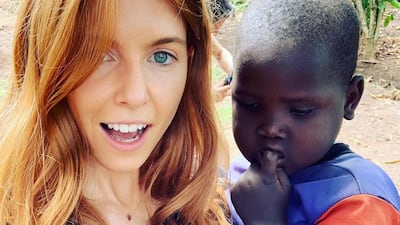There was a time when charities were assumed, more or less, to be above suspicion. Then we learnt of the Oxfam child exploitation scandal in Haiti and of the financial mismanagement of other much-admired organisations.
How much of the money we gave was really going to those in need – and how much to managers, administrators and others – became the big question. There have also been political controversies too. In 1984, a group of pop music superstars founded Band Aid to provide much-needed relief to those living through the Ethiopian famine.
Within a year or two they were being criticised and satirised by – among others – the anarchist band Chumbawamba, who released an album titled Pictures of Starving Children Sell Records. They were suggesting that Band Aid was unable to address the real causes of world hunger, and was in some way self-serving for the pop stars who gave their time to take part.
Now, 35 years later, a similar row has erupted in Britain. Comic Relief is, as the name suggests, the comedian's answer to Band Aid. It was founded around the same time and has similar objectives. It describes itself as a major UK charity with a vision of a just world free from poverty. The row erupted when Stacey Dooley – a documentary maker and the winner of BBC TV's Strictly Come Dancing competition – posed with a Ugandan child in a publicity photograph.
The Labour MP for Tottenham David Lammy responded via Twitter that “the world does not need any more white saviours”. He further explained: “My problem with British celebrities being flown out by Comic Relief to make these films is that it sends a distorted image of Africa, which perpetuates an old idea from the colonial era.”
Ms Dooley replied: “David, is the issue with me being white? (Genuine question)... because if that's the case, you could always go over there and try to raise awareness?” She pointed out that “Comic Relief have raised over £1 billion since it started. I saw projects that were saving lives with the money. Kids' lives.
The problem here is that Mr Lammy, whom I know slightly and admire, and Stacey Dooley, are both good people trying to do good things. Ms Dooley did not need to go to Africa and give her time. Comic Relief is something I support too. But Mr Lammy is also right. The image of Africa that is constantly projected in the west is deeply problematic. To begin with, the word "Africa" is often used as if it is one homogeneous place, not 54 separate and distinct countries.
But the reason Mr Lammy’s comments should make us all think again is something that emerged a few years ago when I was lucky enough to have a conversation with the Senegalese singer Baaba Maal.
I love Mr Maal’s music and was keen to find out how he thought the world saw Africa now. He said that not only did westerners misunderstand the diversity of Africa, we did not understand the “joy”. That word stuck with me. Ask most westerners to sum up Africa even today and I doubt "joy" would even get mentioned.
It is only right that well-meaning, generous people outside of the continent want to help relieve suffering where they can – the problems of poverty, of contaminated water, of disease.
But when western journalists – and I plead guilty to this, myself – cover Africa, the stories are all too often of the Ebola, HIV, malaria, corruption, war and famine variety. Those are things that do exist and need global attention, but not the sum total of life on the continent.
We should also recognise that the real face of Africa is more likely to be a smiling healthy child than one suffering from wretched conditions.
And there is more, which David Lammy did not mention. Send a Cow is, to my mind, a wonderful charity that sees the positive side of Africa, helping people to grow their own food. Not long ago, the organisation asked me to chair a very self-critical conference in London, at which its members listened to a number of complaints similar to Mr Lammy’s.
A Nigerian economist stood up and pointed out of the window, towards the towers of London’s financial centre. She said that it was not a matter of putting money into African nations – the real problem was the people taking money out of them and stashing it in western banks.
So, yes, I do think it’s worth giving to Comic Relief. I also believe that, as Ms Dooley pointed out, charities have a tremendous capacity to help people. But Mr Lammy, Send a Cow and Mr Maal are right. In our rush to help others, we must remember that Africa is not an intractable problem that needs to be fixed by foreign hands. Despite the many challenges the continent faces, it is a vibrant and diverse collection of nations, filled with potential, promise and – yes – no small amount of joy.
Gavin Esler is a journalist, author and television presenter


